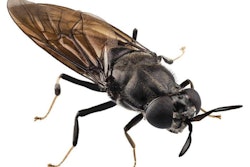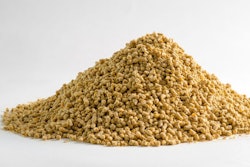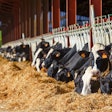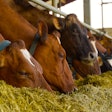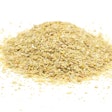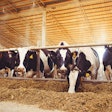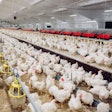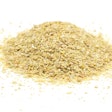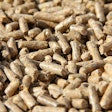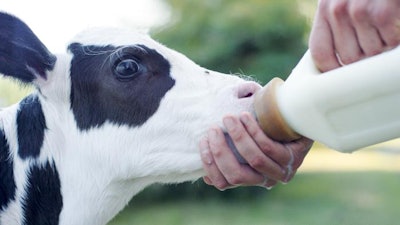
A milk replacer high in crude protein can offer clear advantages
The level of crude protein (CP) in starter feeds for pre-weaned dairy calves is important for two reasons. First, the higher the crude protein, the higher the cost and price of the commercial product – hence a significant advantage or disadvantage in marketing. Second, several commercial research reports indicated that a high-crude protein starter feed enhances pre-weaning growth. And such effect is highly desirable, especially for heifers, but also for males that will be fattened later on.
A conventional starter feed contains about 18% CP, although lately this number hovers around 20%. The reason for this is the earlier weaning age (42-56 days as opposed to 56-70 days) and the lower milk replacer allowance (4-6 liters per head per day as opposed to 6-8 liters – although calves can consume 10 liters with no problems). High-crude protein feed starters contain about 26-28% CP, and this difference can come from extra soybean meal or more refined soy or other vegetable protein sources. In either case, the extra protein always increases final cost and there is always the question whether it pays off to offer high-CP starters.
A trial conducted at the University of Illinois at Dr. James Drackley’s laboratory confirmed that a high-CP starter feed is less important than a high-quality milk replacer program. In brief, a low-CP starter feed offers little if anything in terms of extra growth, but a high-CP milk replacer can definitely offer clear advantages. Of course, growth is not the only desired effect when feeding a dry starter. Rumen development is also important, but again, protein does not seem to play a major role there, whereas actual feed intake is the key.
I essence, good quality products, either a milk replacer or a dry starter, does not have to be super-fortified with nutrients as calves do not lack the appetite to accommodate their needs. A balance between milk replacer allowance and a dry starter based on good quality ingredients will suffice in most cases.


